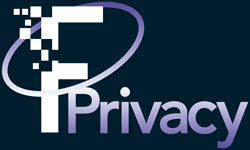Master Global Compliance: Your Single Point of Truth
In 2026, compliance is no longer a "one-off" task—it is an operational requirement. Formiti's multi-disciplinary team of Legal Consultants, Privacy Experts, and Technical Operations bridge the gap between complex law and daily business.
We simplify the world's most demanding frameworks so you can focus on growth:
- The UK & Europe: Leading transition strategies for the UK Data Use and Access Act 2025 and full EU AI Act alignment.
- The Middle East: Specialist support for Saudi Arabia's PDPL and the UAE Federal Data Protection Law, ensuring seamless entry into the GCC markets.
- Asia-Pacific: Specialist expertise in Thailand's PDPA, India's DPDP, and emerging frameworks across ASEAN.
- South America & Africa: On-the-ground support for Brazils LGPD, South Africas's POPIA, and evolving US state-level privacy mandates.
- United States & State Laws: Expert management of the US "patchwork," from California's CCPA/CPRA to the newly effective 2026 mandates in Indiana, Kentucky, and Rhode Island. We specialize in cross-state health data, children's privacy (AADC), and AI risk assessments.

![]()
Global Outsourced DPO Service
Secure a dedicated Data Protection Officer backed by our tripartite team of Legal, Privacy, and Technical Operations experts. In 2026, one person isn't enough; our "DPO-as-a-Service" provides 24/7 global oversight, managing everything from EU AI Act alignment to Saudi PDPL requirements across 120+ jurisdictions.
![]()
EU & UK Article 27 Representative Service
Companies without a physical presence in the UK or EU must appoint a legal representative to handle regulatory inquiries and Data Subject Access Requests (DSARs). Formiti provides official representation via our headquarters in Birmingham (UK) and Dublin (EU). Ensuring you meet the mandatory requirements of the UK Data Use and Access Act 2025 and the GDPR,
![]()
Thailand PDPA Local Representative Service (PDP
Navigate the Thailand Personal Data Protection Act (PDPA) with certainty. For foreign firms targeting the Thai market, appointing a local representative is a mandatory legal requirement under Article 37. With our regional office in Nakhon Sawan, Formiti acts as your official liaison with the PDPC, managing data subject requests and ensuring you are protected from the 2026 "Zero Data Breach" enforcement wave.
More Than a Consultant: Your Global Privacy Department
In an era of "The Privacy Avalanche," relying on a single internal DPO is a high-risk strategy. Formiti provides a dedicated, multi-disciplinary infrastructure that scales with your business. We don't just point out problems; we provide the Legal, Technical, and Operational architecture to solve them. By partnering with us, you move from "passive compliance" to Evidence-Based Accountability, securing your reputation in the UK, EU, Middle East, and Asia.
While we serve 120+ jurisdictions, Formiti is proudly headquartered in Birmingham's St Paul's Square. We provide specialized, on-the-ground support for the West Midlands' primary growth sectors, including Manufacturing, Life Sciences, and Legal-Tech."
A Team, not a Single Resource:
When you engage Formiti's DPO-as-a-service, you aren't hiring a "lone wolf" contractor. You gain an entire department. Our Privacy Team (Technical Architects), Legal Team (Regulatory Shields), and Operations Team (Implementation Engine) work in total synchronization. This eliminates "Single Points of Failure" and ensures that if a data breach happens at 2 AM, a qualified response team is already active.
Global Expertise, Local Authority
Compliance in 2026 is hyper-local. While others offer generic advice, Formiti provides on-the-ground data protection consultancy services expertise in 120+ countries. With physical headquarters in Birmingham, Dublin, and Nakhon Sawan, and Antwerp (2026) we bridge the gap between global strategy and local enforcement. We specialise in the nuances of the UK Data Use and Access Act 2025, the Saudi PDPL, and the EU AI Act.
Predictable ROI & Operational Efficiency
Transition your compliance from a high fixed CAPEX to a predictable, flexible OPEX. An outsourced Formiti team typically costs 30-50% less than a senior in-house hire, without the recruitment fees, training overhead, or "retention risk." You get 24/7/365 coverage, including advanced privacy tooling and automated reporting, out of the box.
Trusted by a Portfolio of Companies & Businesses






What Our Clients Say
Formiti's data protection consultancy services teams prioritise client satisfaction, consistently placing our clients' needs at the forefront. Our unwavering commitment to comprehending their priorities ensures that their interests and concerns are the focus of our efforts to guarantee Data Privacy Compliance.
Engaging Formiti is paramount for safeguarding your privacy. Their expertise ensures data protection compliance and risk mitigation, a wise investment for any organization. Formiti has consistently proven to be our trusted global privacy experts covering three continents for over four years. Their reliability and precision in providing guidance are unmatched.
R Tella
Legal Counsel, Planet Smart City

Formiti delivered our GDPR assessment and implementation project to a very high standard. Their expertise in this area allowed them to work with all business units without any interruption of operations. They also provided expert legal services in relation to contracts and privacy policies. We have now engaged with Formiti for their ongoing outsourced GDPR advisory service.
Jonny Summers
CCO, Scede

We asked Robert to come in and do an audit for us in the lead up the introduction of PDPA in Thailand. He spent a week with us and was forensic in his approach. His report has left us a lot to think about and act upon. Compared to other firms offering the same thing, the price was very reasonable and they have experience in the SE Asia market, so the advice is refreshingly specific rather than generic. I wouldn't hesitate to recommend Formiti for data regulation services.
Dr T J Jefferis
Second Master, Harrow International School Thailand

When we first began Scalapay SRL, we knew that as a Fintech start-up a solid GDPR compliance framework would be critical to the success of our business. Robert and his team at Formiti provided the experience, framework, tooling. and guidance to ensure we got things right from the very beginning. They have helped us not only maintain but grow our compliance and have become a trusted partner to the organisation.
Johnny Mitrevski
CTO, Scalapay

Our Latest Privacy News

OUR OFFICES
UK Office
Birmingham, B3 1RB, United Kingdom
Ireland Office
Thailand Office
CONTACT US
Formiti